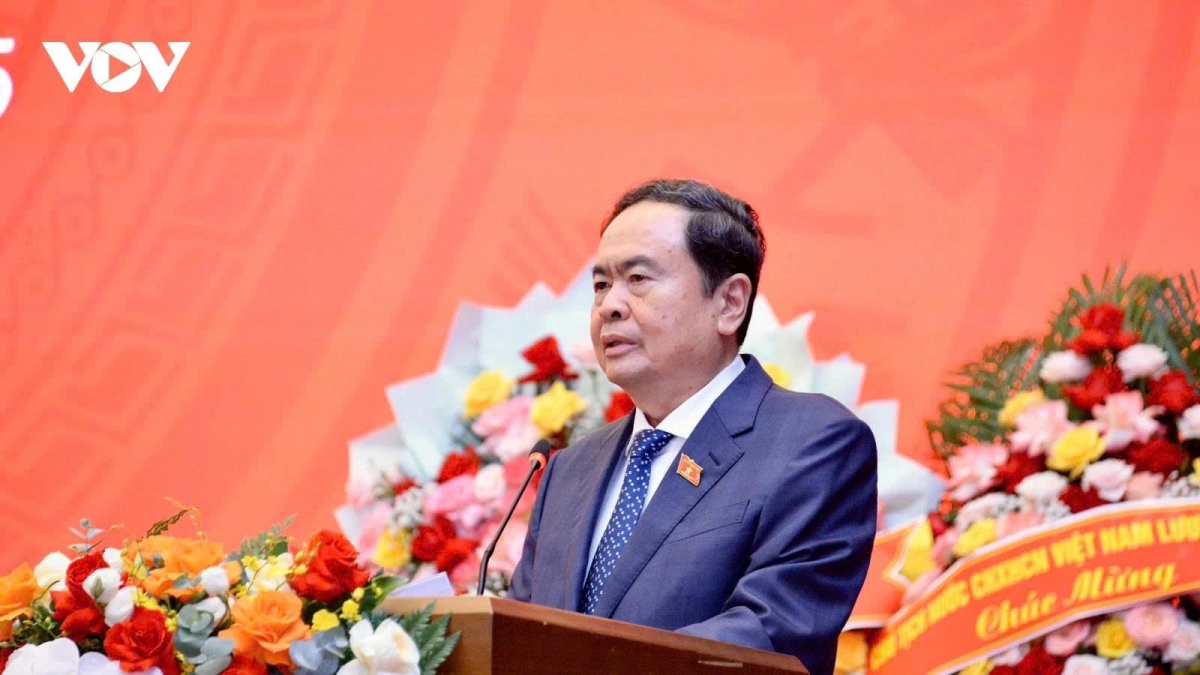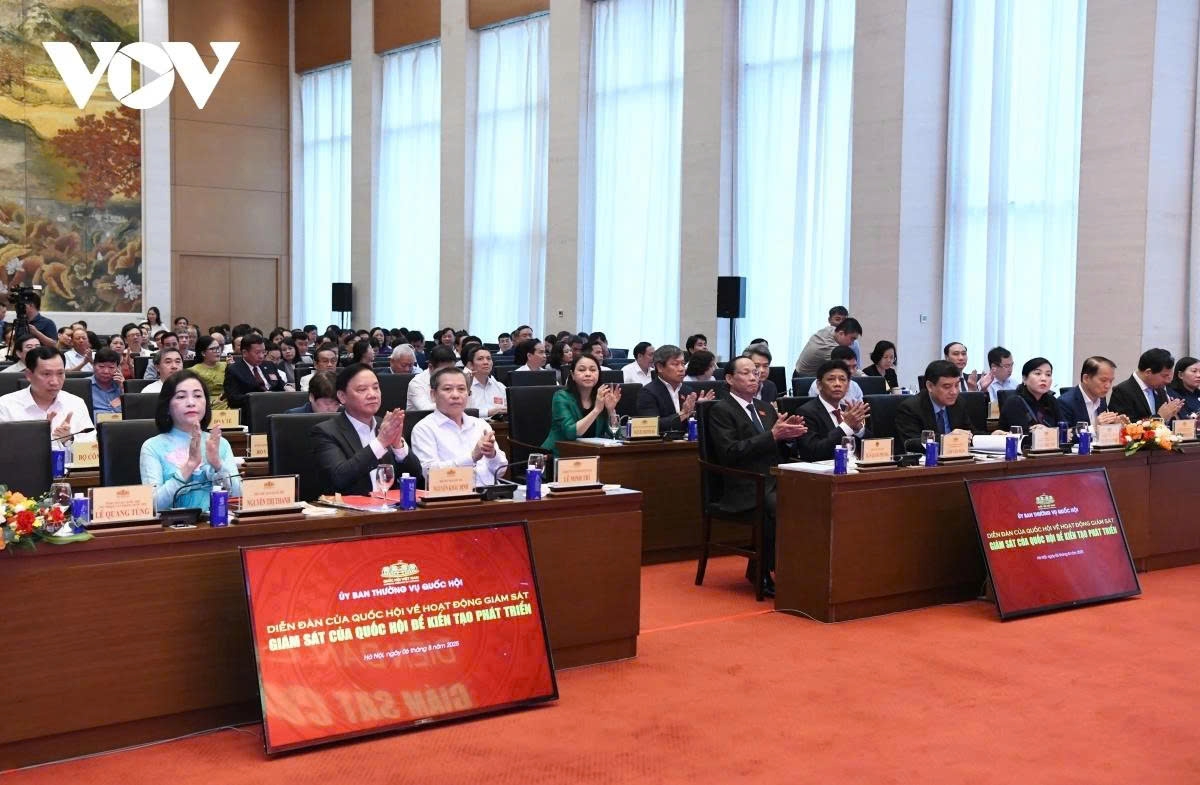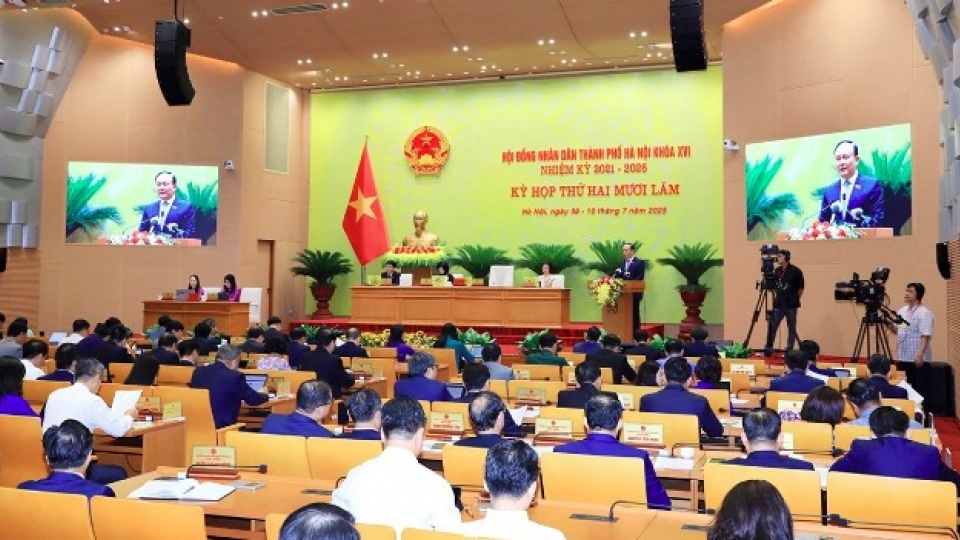Legislative oversight to be reinforced for national development, says top legislator
VOV.VN - Legislative oversight should be viewed as a key tool for fostering national development in the new era, said National Assembly Chairman Tran Thanh Man at the first ever National Assembly forum on supervision in Hanoi on August 6.

According to the top legislator, the National Assembly’s supervision activities have in recent years achieved many notable results. The legal and institutional framework for supervision has been strengthened, becoming more responsive to real-world demands. Cooperation among the National Assembly, Government, Vietnam Fatherland Front Central Committee, Supreme People’s Court, Supreme People’s Procuracy, State Audit, Government Inspectorate, ministries, localities, and media has been timely and effective.
Importantly, question-and-answer sessions at National Assembly sittings have become an effective form of oversight, attracting great public attention. The National Assembly’s Ethnic Council and committees also hold explanatory sessions on pressing issues raised by voters.
The National Assembly’s supervision activities clearly demonstrate its close coordination with the Government in promptly resolving difficulties and obstacles. The handling of public petitions has been significantly improved, becoming more practical, frequent, transparent, and compliant with the law. The National Assembly Standing Committee also reviews and discusses public concerns regularly in its monthly meetings.
Oversight of legal documents is becoming increasingly practical and effective. The Politburo issued Resolution No. 66-NQ/TW, aimed at renewing legislative drafting and enforcement to meet the demands of development in the new era. In parallel, the National Assembly adopted Resolution No. 197/2025/QH15, introducing special mechanisms and policies to drive breakthroughs in law-making and enforcement. The Central Steering Committee for Institutional and Legal Reform has convened multiple sessions to review and address institutional bottlenecks. During its recent sessions, the National Assembly passed a series of laws and resolutions designed to remove obstacles and unlock development resources.
However, Chairman Man also pointed out a number of limitations and challenges, including incomplete implementation of supervisory conclusions and recommendations, weak and inconsistent follow-up and enforcement, and inadequate coordination between National Assembly oversight and auditing, inspection, and examination activities. In addition, there is a lack of clear and accessible mechanisms for citizens and voters to exercise their supervisory rights, while resources and tools for effective oversight remain insufficient.

According to the National Assembly Chairman, the large number of laws and resolutions passed at recent legislative sessions, along with amendments to the Law on Promulgation of Legal Documents, has raised new demands for oversight. The shift to the two-tier local governance model requires that National Assembly supervision becomes more substantive, especially in monitoring how laws, decrees, and circulars are issued and implemented. The National Assembly Standing Committee will organise more regular and ad-hoc supervision missions to detect and address difficulties in a timely manner.
Given the fast-changing domestic and global socio-economic context, which demands constant legal adjustments, the National Assembly Standing Committee will listen to deputies' feedback and propose amendments to the Law on Supervision Activities of the National Assembly and local People's Councils, aiming to pass the revised law at the coming year-end session of the legislature. This is to ensure that supervisory resolutions are fully and seriously implemented in practice.
The Chairman recalled Party General Secretary To Lam’s request at a recent National Assembly session, that “We must promptly determine appropriate forms and methods of supreme supervision by the National Assembly that align with practical realities, avoid overlap with other state agencies, and minimize waste. Efforts should continue to enhance the quality of Q&A sessions, explanatory hearings, and legal document oversight, while ensuring thorough follow-up and implementation of post-supervision recommendations.”
The National Assembly Chairman expressed his confidence that the forum would receive insightful, passionate, and responsible contributions from National Assembly deputies, experts, scholars, and researchers, helping to perfect the institutional framework for supervision in this new stage of national development. These efforts will contribute to socio-economic growth, national defence and security, political system reform, and the fight against corruption, wastefulness, and misconduct.





